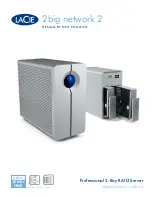
20
Introduction
Ad Hoc Audio Conferencing service
This service provides on-demand audio conferencing for three or more
parties. It is invoked from all Nortel MCS clients. The Ad Hoc Audio
Conferencing service also supports consultative transfers initiated by
these clients. Public Switched Telephone Network (PSTN) participants
are supported through gateways but cannot invoke the Ad Hoc Audio
Conferencing service.
To initiate an Ad Hoc conference, a subscriber selects the Join or Conference
button from an MCS Client. Conference functionality is requested using a
SIP INVITE request, which is routed to the Ad Hoc Audio Conferencing
service. The Ad Hoc Audio Conferencing service allocates a bridge (if
resources and licenses are available) and returns a token to the initiator.
The initiating client then sends a SIP REFER message (using the Session
Manager) with the token to all clients it is in active session with, causing all
clients to move their call leg to the bridge. Audio streams are sent to the
bridge for mixing using the Real Time Transport Protocol (RTP). All signaling
to the Ad Hoc Audio conferencing service is through the Session Manager.
Announcements service
You can use the Announcements service to share information with users
when predefined events occur in the system. The following two types of
announcements are provisioned:
•
treatment (cause) announcements that inform callers of the status of
their calls
•
branding announcements that identify company or product names for
commercial purposes
Note: Nortel does not supply announcement audio files. The software
is shipped without any default announcement recordings. The
administrator is responsible for obtaining announcement files and
provisioning them on the MAS.
The Announcements service is service-package independent. This service
is provisioned at the SIP root domain and, optionally, at the subdomain
levels. All members of the domain receive the same announcements.
Treatment announcements
These prerecorded announcements provide the calling party with an
explanation of why their call cannot be completed immediately. For example,
an announcement can inform the caller that all circuits are busy.
Treatment (cause) announcements consist of one or more audio messages
that you can chain together and for which you can specify a playback
order. You decide which audio messages the caller hears for a given call
failure scenario. Additionally, you can configure these messages to loop
Nortel Media Application Server
Media Application Server Planning and Engineering
NN42020-201
01.04
Standard
4.0
27 July 2007
Copyright © 2007, Nortel Networks
.
















































